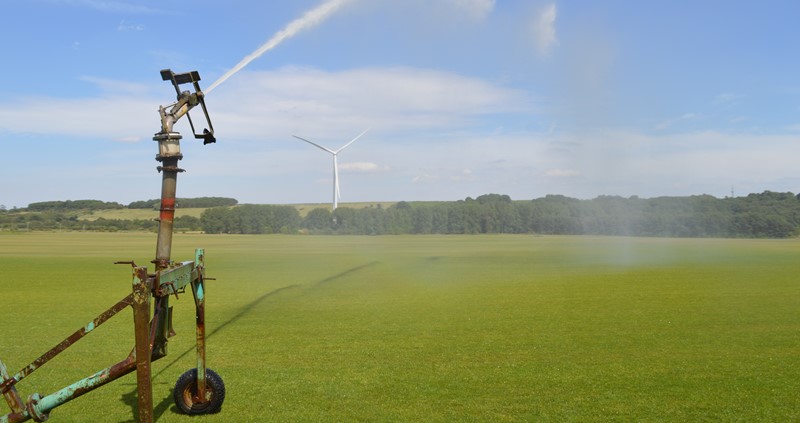The challenge of managing water resources in England is becoming increasingly complex and uncertain, a situation reflected in many countries around the world.
Cooperative and participatory forms of governance are now seen as one way of addressing this challenge.
Lincoln Water Transfer
The LWT (Lincoln Water Transfer) is a member organisation set up in 2000 with 19 members to enable water sharing to be undertaken.
Rather than forming reactively, the group emerged through early collaboration between the Environment Agency, the Upper Witham IDB (Internal Drainage Board), and the local NFU.
Today, LWT holds a single abstraction license in common for its members. It allocates water according to a collectively agreed-upon protocol and manages its own arrangements, using the IDB to collect data and monitor water use.
These arrangements allow members to abstract water from 25km of drainage channels and irrigate any of the 4,600ha of land defined in the license, thus allowing flexibility in water and land use.
LWT is a model of cooperation which will be highly relevant to other Water Abstraction Groups as they evolve in response to increasing pressure on water resources and the need for greater flexibility.
Lessons learnt
1. Pooling of water
The LWT scheme allocates water to its members at the start of each season, and they are to not go past this allocation.
Members then have the opportunity to give water to the pool from their allocation or request water before irrigation starts. This means there isn’t spare water being left in members’ allocation that is susceptible to not being utilised and everyone is getting the water resources they need.
Throughout the season members can take more water if it is available in the pool and if there is shortage in the pool, a call for water will go out to all members requesting that they give up some of their allocation to fulfil this request.
This pooling has proven to have worked well and enables the scheme to use its license to full capacity. LWT is a great lesson in managing water resources efficiently by utilising ‘spare’ water.
2. Communication
Upper Witham IDB work as contractors for the LWT company to manage the running of the scheme. Connection with the members of the scheme is important to allow it to run smoothly as they inform what’s happening in the drains and on the ground.
It is important to work together and not compartmentalise the scheme. The LWT keeps contact with both the members and Chairman/Secretary of the scheme to allow it to run smoothly.
3. Technology
A telemetry system is used to monitor how much water is transferred back into the drainage system for irrigation. This information is then relayed back to the EA every week and is an important part of the scheme.
Without the telemetry system sending information from the pumping stations back to laptops, transfer figures would have to be checked every week which in turn would cost the IDB more money in staff time.
